Following a successful Catholic Education Conference 2021, we are proud to present a five-part series based on Archbishop William Goh’s address at the conference. In part 5, we contemplate how to build supportive school communities which provide meaning and comfort for students, especially in their times of trial.
The mark of a Catholic school is whether it is a loving community, a community that embraces every human person. Those who are intellectually strong, those who are intellectually weak, those who are financially wealthy, those who are poor – every person is accepted, respected, regardless of race, language, religion. Every person is given the encouragement, that no students should ever give up hope on themselves.
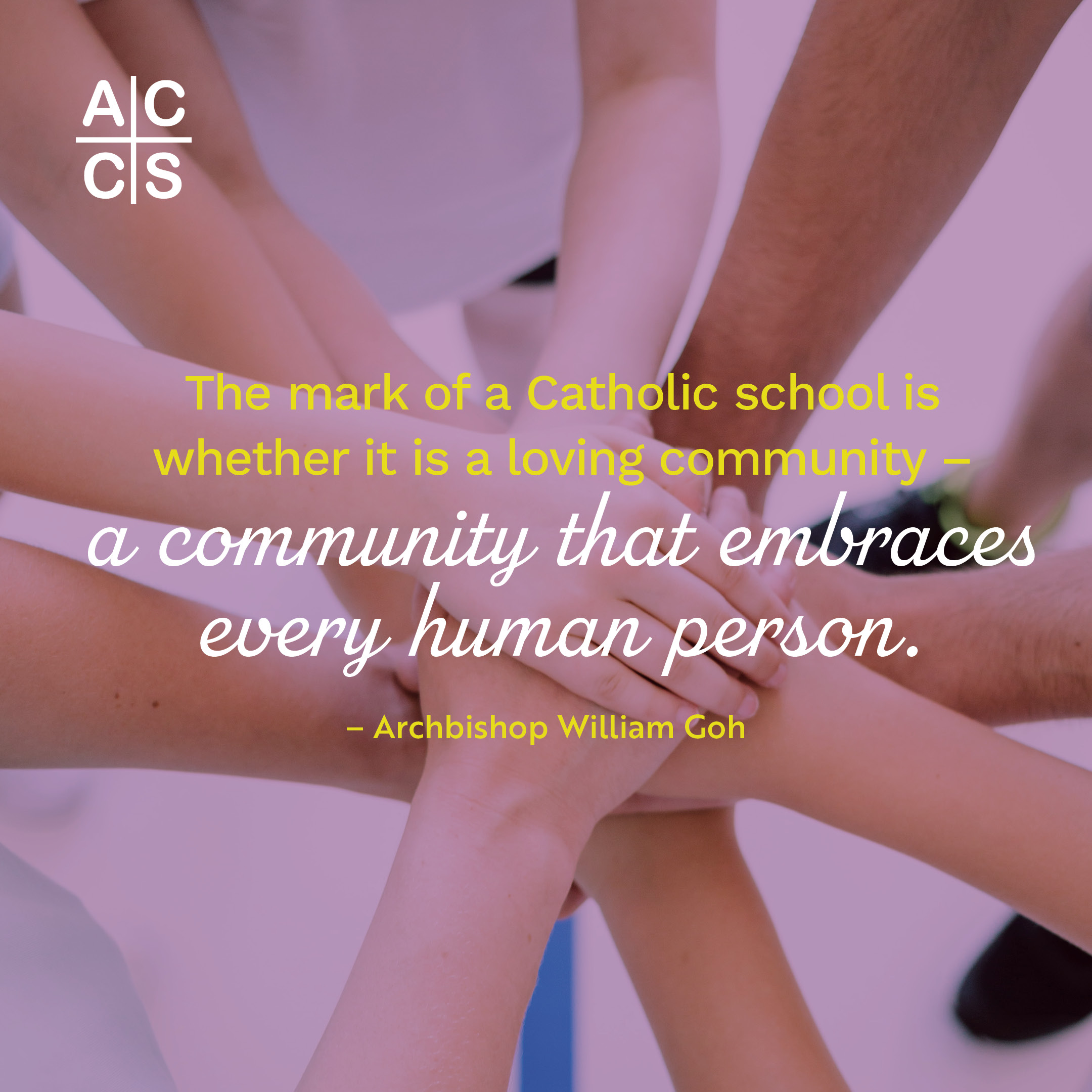 A Catholic ambience means we will keep on encouraging the person – no-one is hopeless. It’s a place also where there is forgiveness. People make mistakes, we are learning, we are all growing, nobody is condemned, nobody is humiliated. We have to treat people gently, be compassionate.
A Catholic ambience means we will keep on encouraging the person – no-one is hopeless. It’s a place also where there is forgiveness. People make mistakes, we are learning, we are all growing, nobody is condemned, nobody is humiliated. We have to treat people gently, be compassionate.
Everybody has his or her dignity. If we need to correct someone, we correct them with gentleness, with firmness.
And also, because we are a Eucharistic community, we are called to share Christian values to make sure the community, the students, are growing in selfless service. Most of all, if they are ambitious – it’s good to be ambitious – but not for yourself, not for one’s glory, but for the growth and the good of the community.
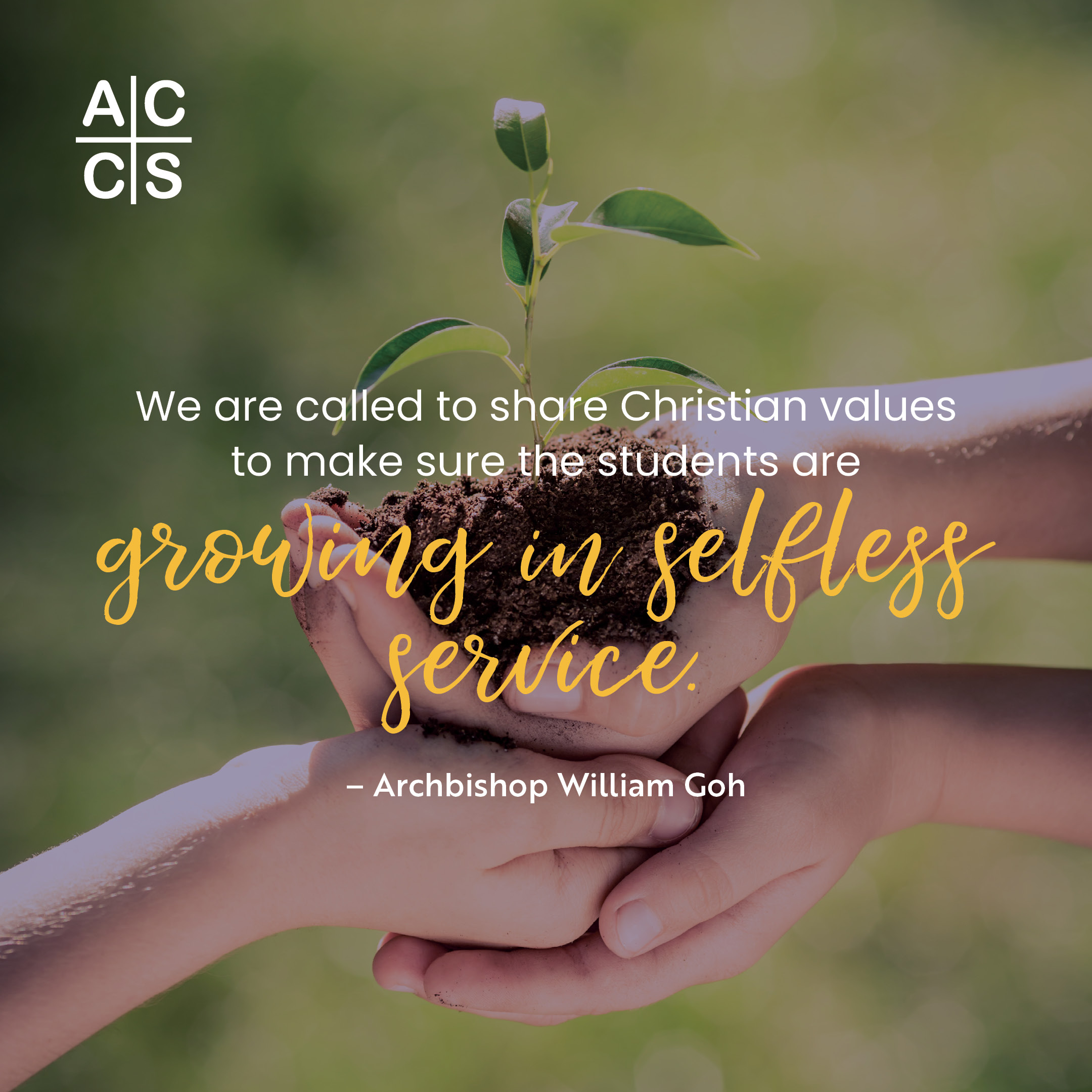
Forging Fellowship
So, this is what the Catholic ambience is all about, encouraging our young ones to help each other. You know, in many schools today, we have some of the students bullying each other – this is where we need to help them to be sensitive, because many are broken also, many are wounded, and this is where we are called to help them to build fraternity.
And what a greater way to celebrate, to help people encounter God, through the God experience: liturgy, prayer sessions, festivals – the Church has many feasts, because it is in the celebration of these feasts, that we come to encounter Jesus.
On founder’s days or patron saints’ days, these are all our heroes that we are called to imitate.
And so, I want to remind you all, be careful, don’t remove all references to the sacred in our schools and in your life, because without God, there will be a vacuum in the lives of our young people. Life is reduced to pleasure, success, but will they find meaning? Will they find purpose? Would they be happy? Will they live a life of fulfilment? That is the whole purpose of education.

Support and Meaning
Not so long ago, our minister Lawrence Wong in 2019, he said, “94 young people between the age of 10 to 29 committed suicide. Of these, 19 were aged between 10 and 18 years old.”
Today our students are very stressed. Two weeks ago, we had a professor from IMH – he was writing an article that, the only way to deal with a loss of faith and the will to live, is to help people to find faith.
He made it clear, those who are suffering from depression are less likely to commit suicide if they have religion, than those without, because those with religion, they have purpose and meaning in life, they have spiritual and emotional support.
 We need to provide our young people with a strong Catholic school community and spiritual support, so that they will not feel alone. This is why, my dear brothers and sisters, we need to uphold Catholic schools’ values and our mission, to continue to help these young people to grow, to become great leaders for tomorrow.
We need to provide our young people with a strong Catholic school community and spiritual support, so that they will not feel alone. This is why, my dear brothers and sisters, we need to uphold Catholic schools’ values and our mission, to continue to help these young people to grow, to become great leaders for tomorrow.
Let us go back to basics, let us go back to our founders and learn from them how to bring the Gospel into the lives of our students and so prepare them to be leaders of tomorrow and, most of all, to be people who live life with purpose, meaning and fullness.
Reflection Questions:
- Teachers – do you remind your students that, despite our performance-driven culture, there are more important things than grades, and ultimately success can come in many different ways? How do you care for your own mental and spiritual health?
- Students – how do you cope with the pressures of study? Are you aware of mental health and spiritual supports provided in school and the wider community? Whom can you talk to if you are going through difficulties?
- Parents – life can be stressful juggling work and family duties. How do you maintain your family’s mental and spiritual health? Are your children comfortable opening up to you about their struggles? Do you know where to seek help if you or your family members require more support?
If you need more support in maintaining your spiritual or mental well-being, you may reach out to Catholic Family Life or helplines by various community care organisations in Singapore.


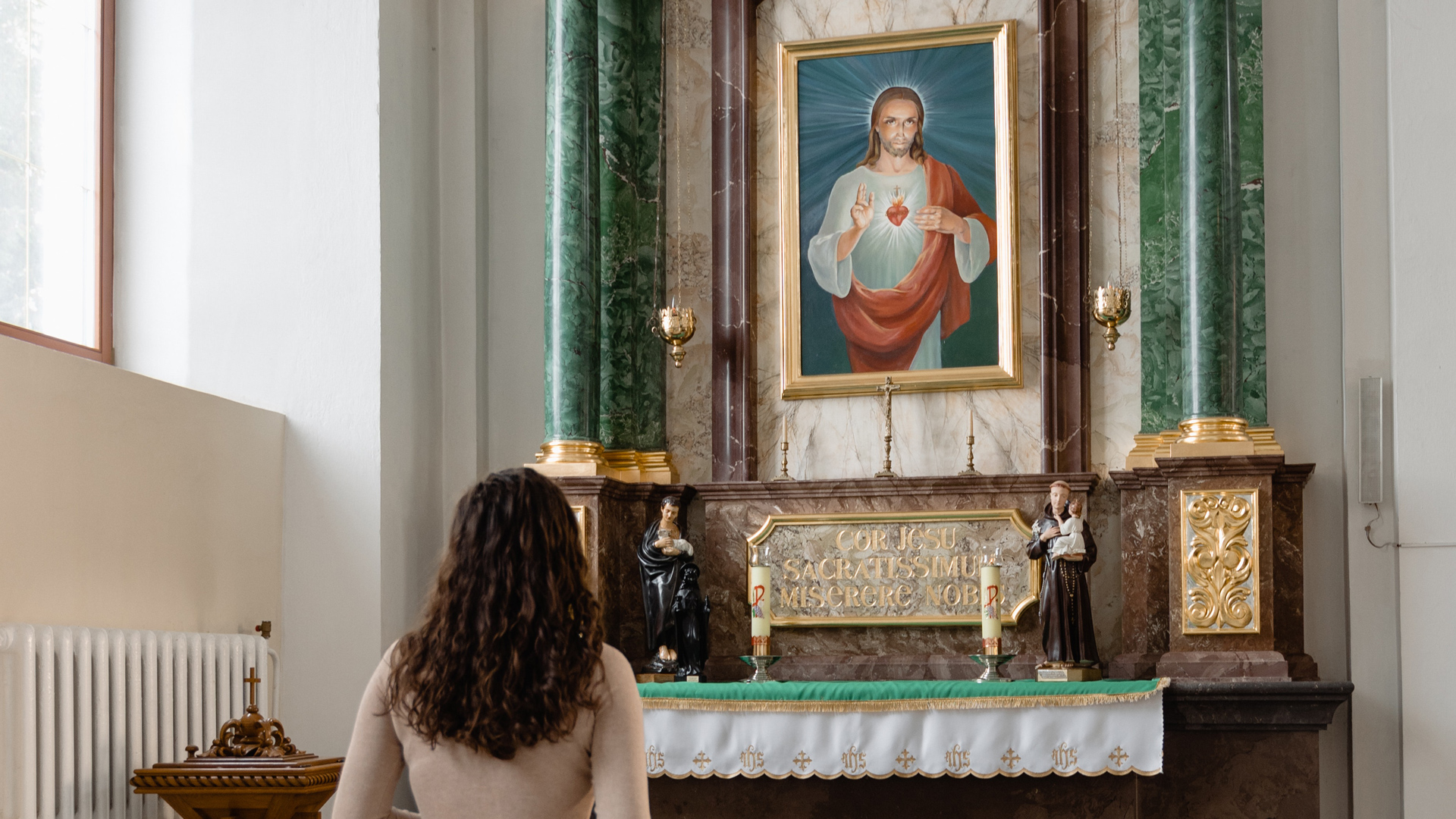 What we mean, according to our theme, “to create this God experience” – to create this God experience is really to provide the ambience for people to encounter Jesus, to encounter God in a very concrete way.
What we mean, according to our theme, “to create this God experience” – to create this God experience is really to provide the ambience for people to encounter Jesus, to encounter God in a very concrete way.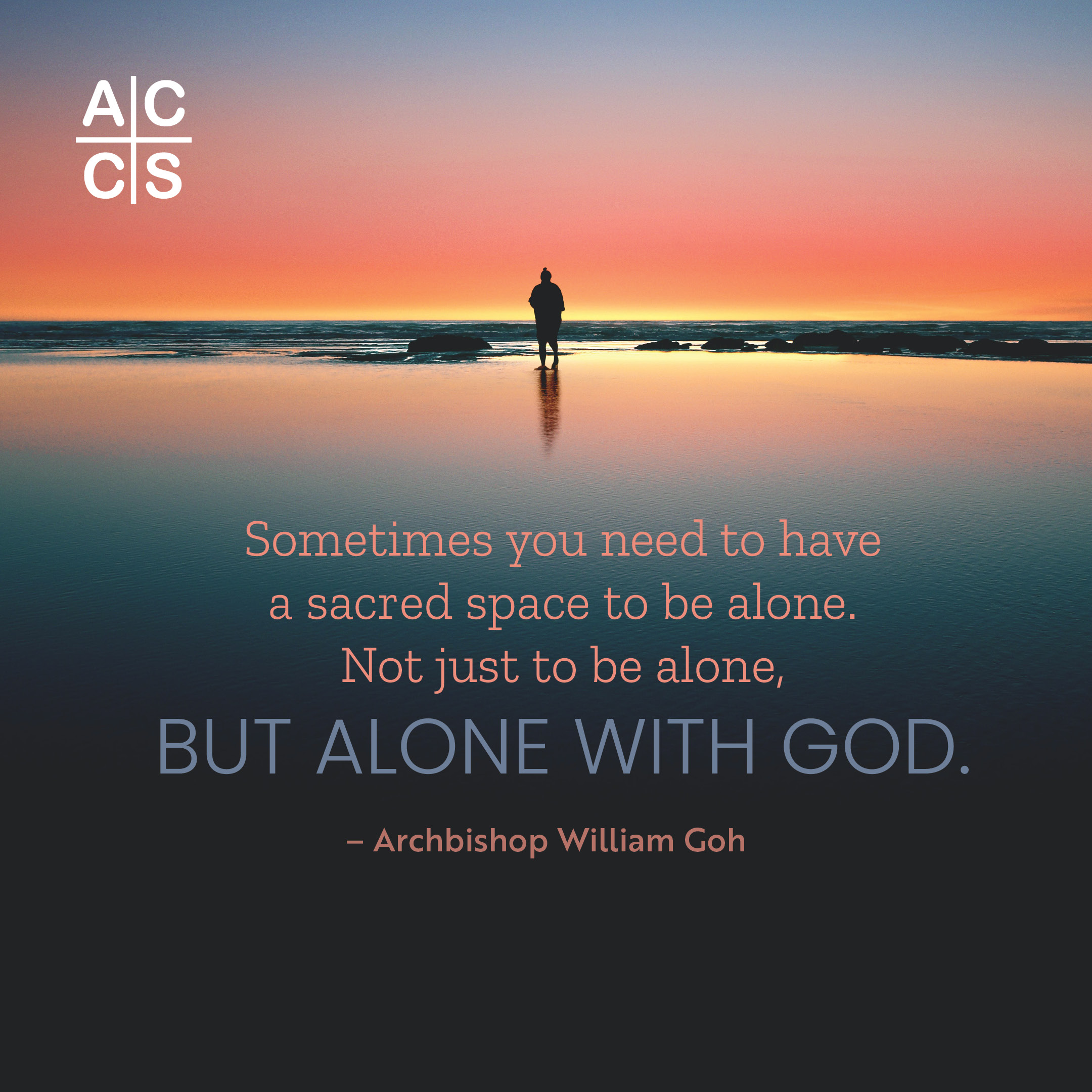
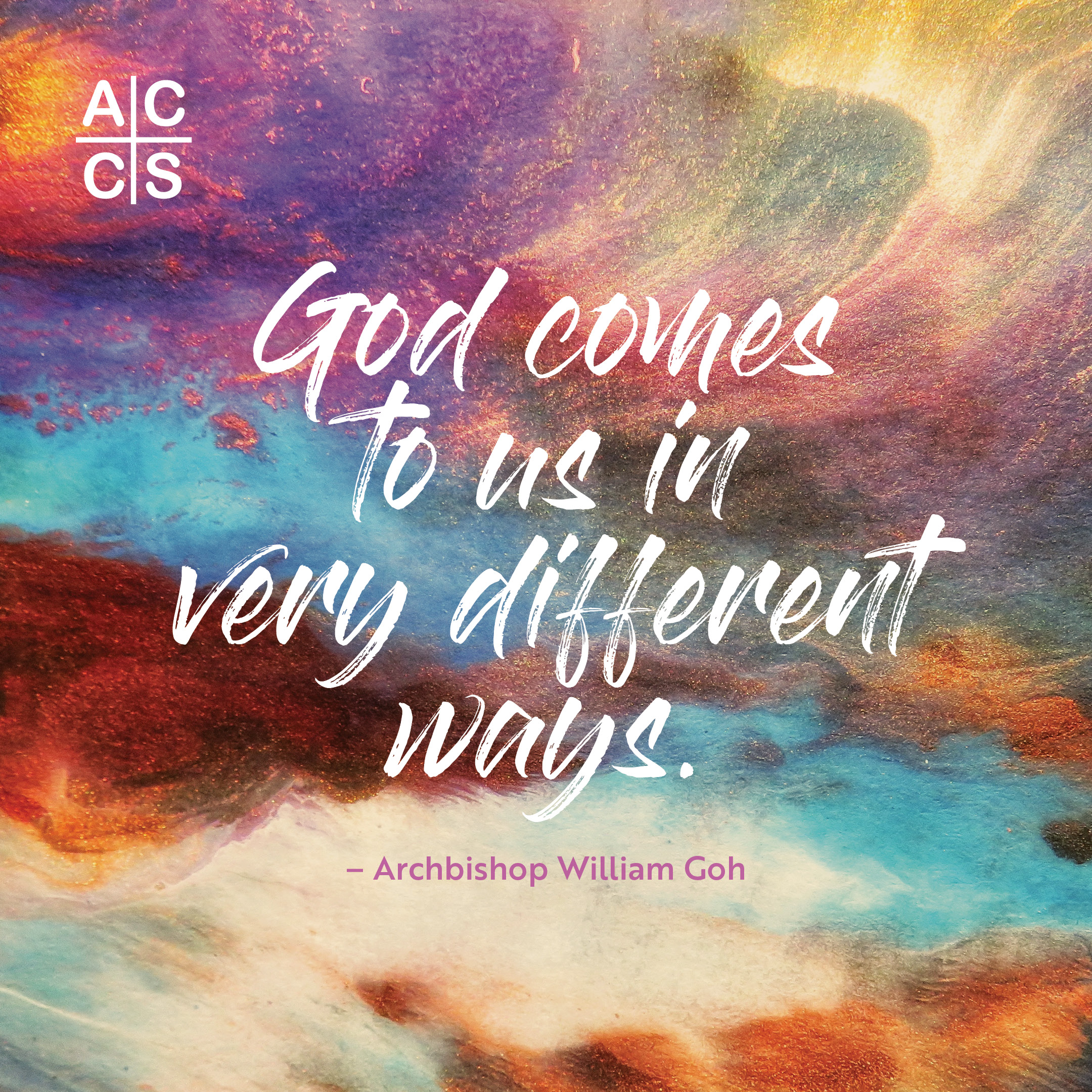 It is not just all external. When we talk about the incarnational presence of Christ, it is more than all these statues, images and scripture texts. What is more important, is that this must be translated into daily life, and so, for me the mark of a Catholic school, is whether it is a loving community, a community that embraces every human person.
It is not just all external. When we talk about the incarnational presence of Christ, it is more than all these statues, images and scripture texts. What is more important, is that this must be translated into daily life, and so, for me the mark of a Catholic school, is whether it is a loving community, a community that embraces every human person.
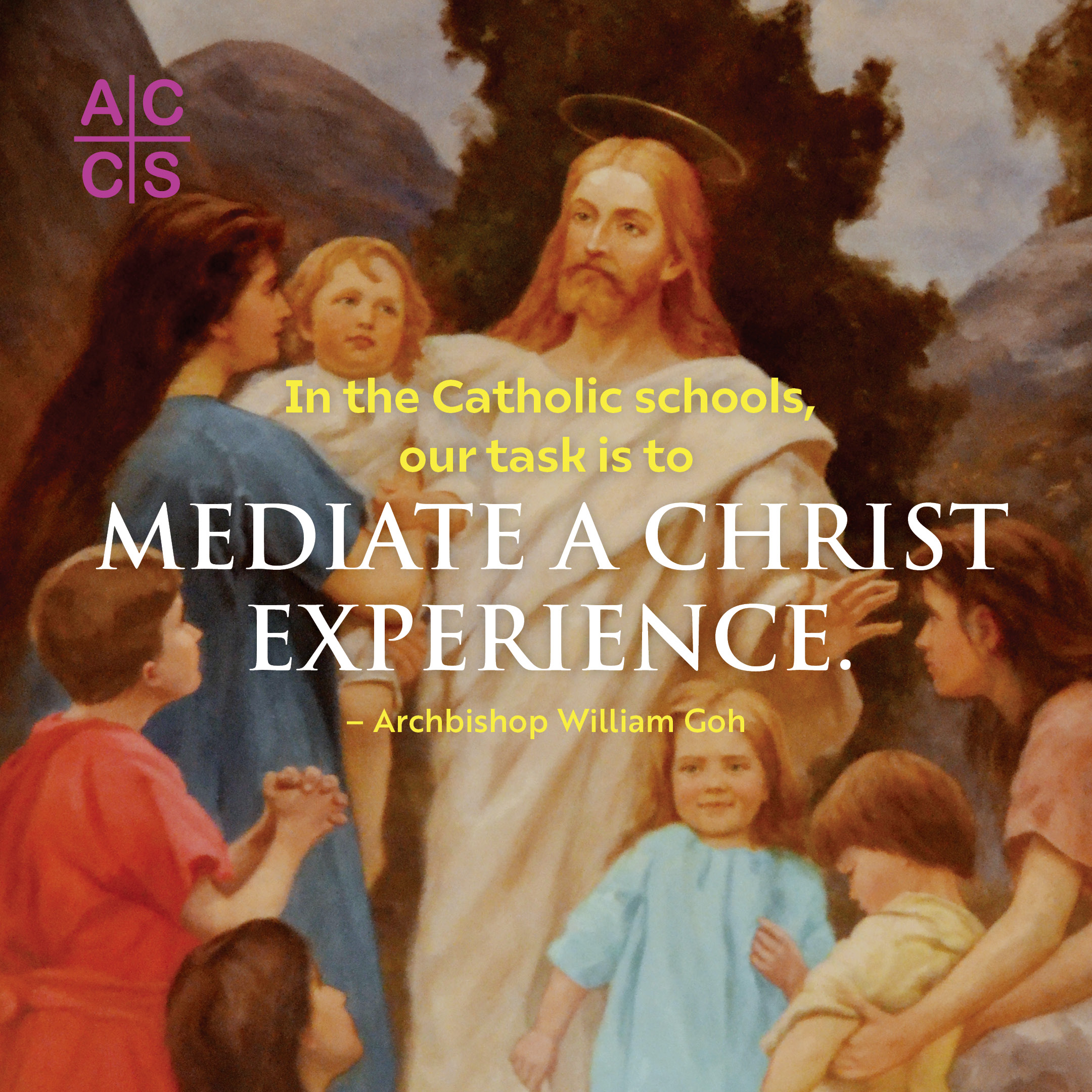 A number of them, because they are so convicted that Jesus is the one who will be able to give them fullness of life, they prefer to send them to the Protestant schools.
A number of them, because they are so convicted that Jesus is the one who will be able to give them fullness of life, they prefer to send them to the Protestant schools. Only religious schools remind us the ultimate goal is not just in this life, that we have a soul, we have a destiny. Our ultimate happiness is life with God. That is why Catholic schools offer a Catholic ambience, a Catholic way of life, Catholic values, but I think most of all, most importantly we offer students meaning and purpose in this world, in view of the world hereafter.
Only religious schools remind us the ultimate goal is not just in this life, that we have a soul, we have a destiny. Our ultimate happiness is life with God. That is why Catholic schools offer a Catholic ambience, a Catholic way of life, Catholic values, but I think most of all, most importantly we offer students meaning and purpose in this world, in view of the world hereafter.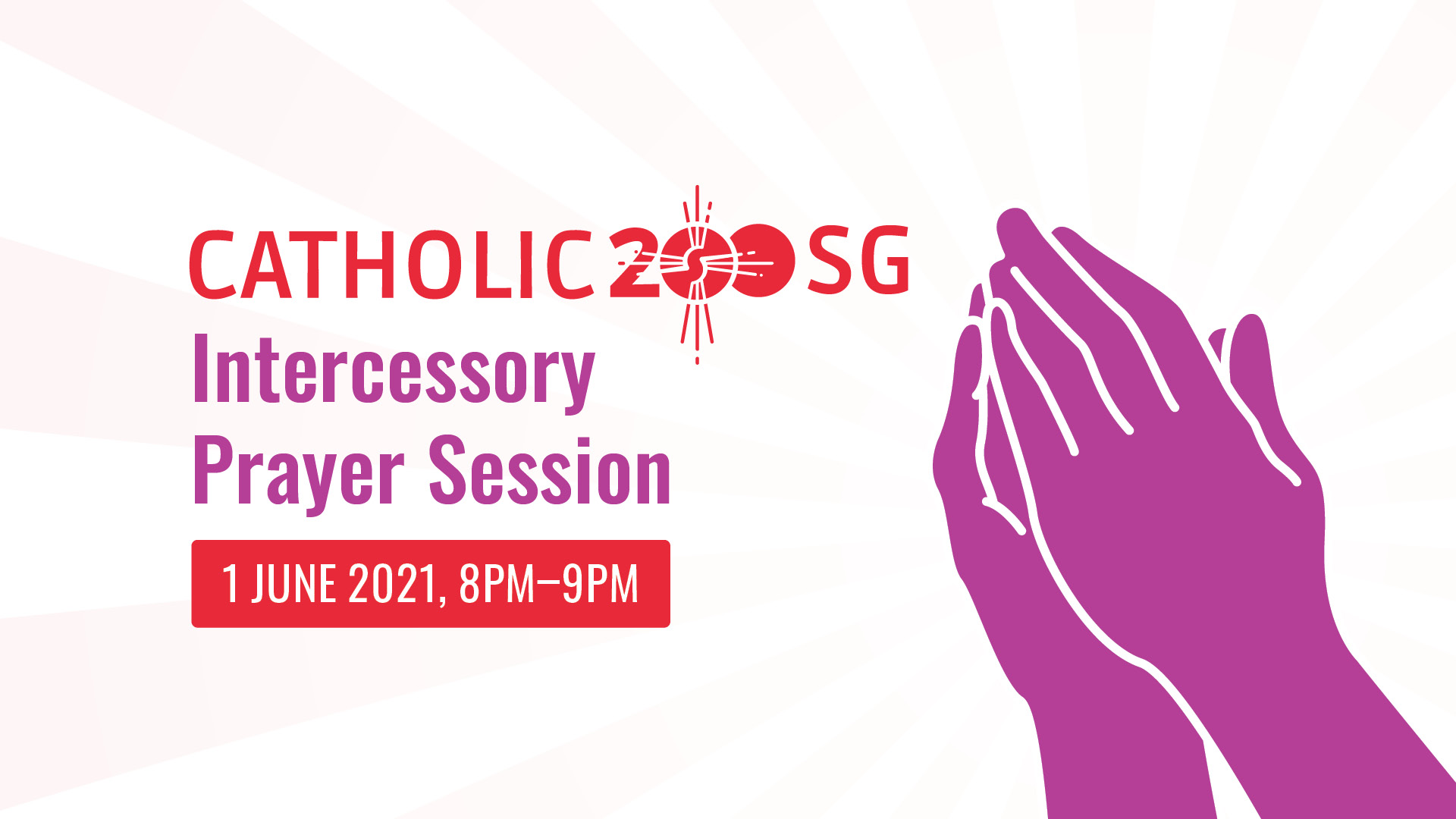
 After Sr Pavri’s introduction, each religious congregation and their schools will give a short presentation, comprised of a scripture reading and quote from their founder, followed by prayers of the faithful. Together, the community will pray for our Catholic schools, school leaders, teachers, students, parents, sponsors, the Ministry of Education, the Catholic Church and our nation.
After Sr Pavri’s introduction, each religious congregation and their schools will give a short presentation, comprised of a scripture reading and quote from their founder, followed by prayers of the faithful. Together, the community will pray for our Catholic schools, school leaders, teachers, students, parents, sponsors, the Ministry of Education, the Catholic Church and our nation.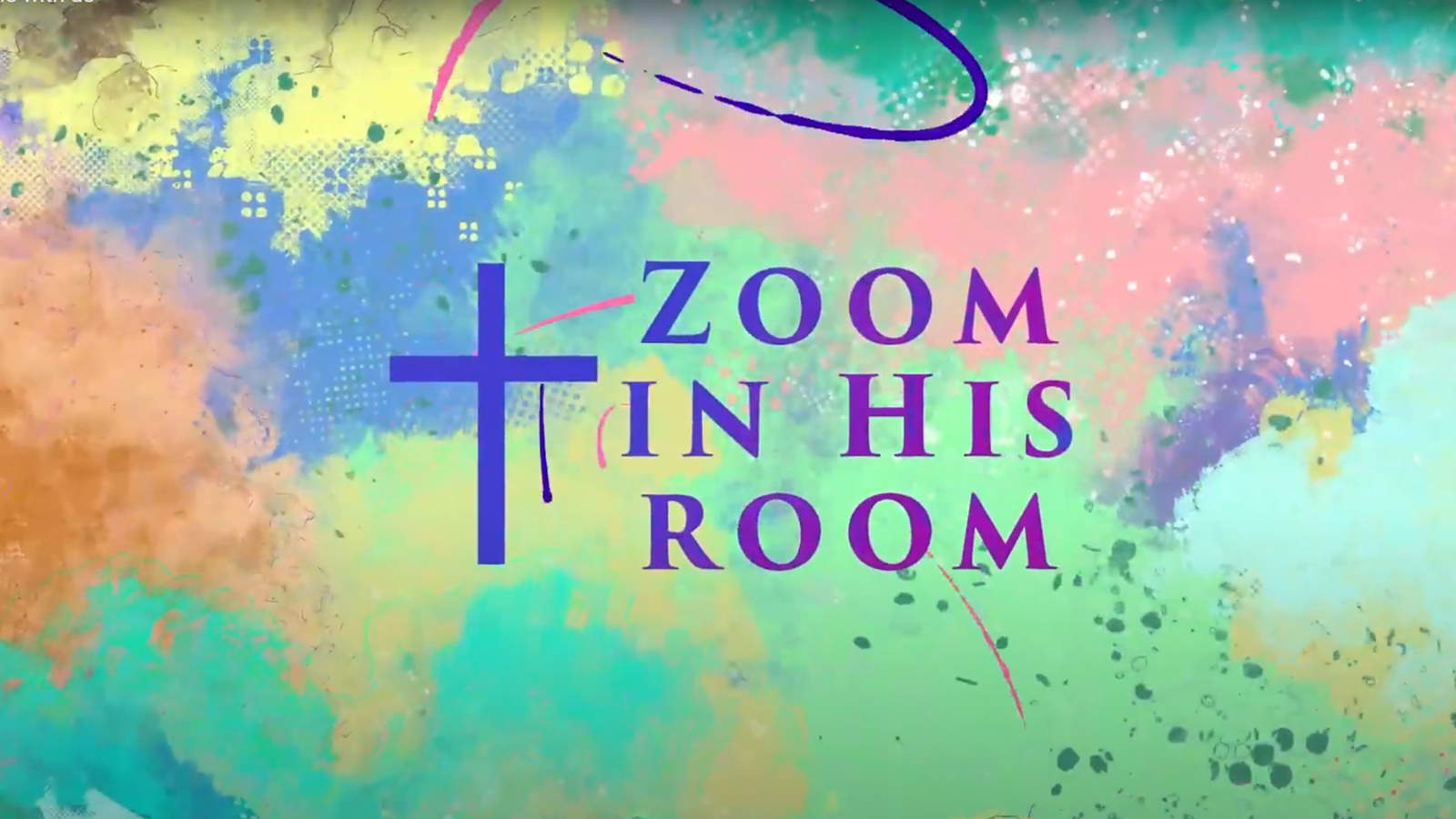


 Just to explain the doctrinal message of why God is present in Jesus: if you remember the Gospel of John chapter 14, Thomas said to the Lord, “How can we know the way?” and Jesus answered, “I am the way, the truth and the life. No one can come to the Father except through Me. If you know Me, you will know My Father also.”
Just to explain the doctrinal message of why God is present in Jesus: if you remember the Gospel of John chapter 14, Thomas said to the Lord, “How can we know the way?” and Jesus answered, “I am the way, the truth and the life. No one can come to the Father except through Me. If you know Me, you will know My Father also.”





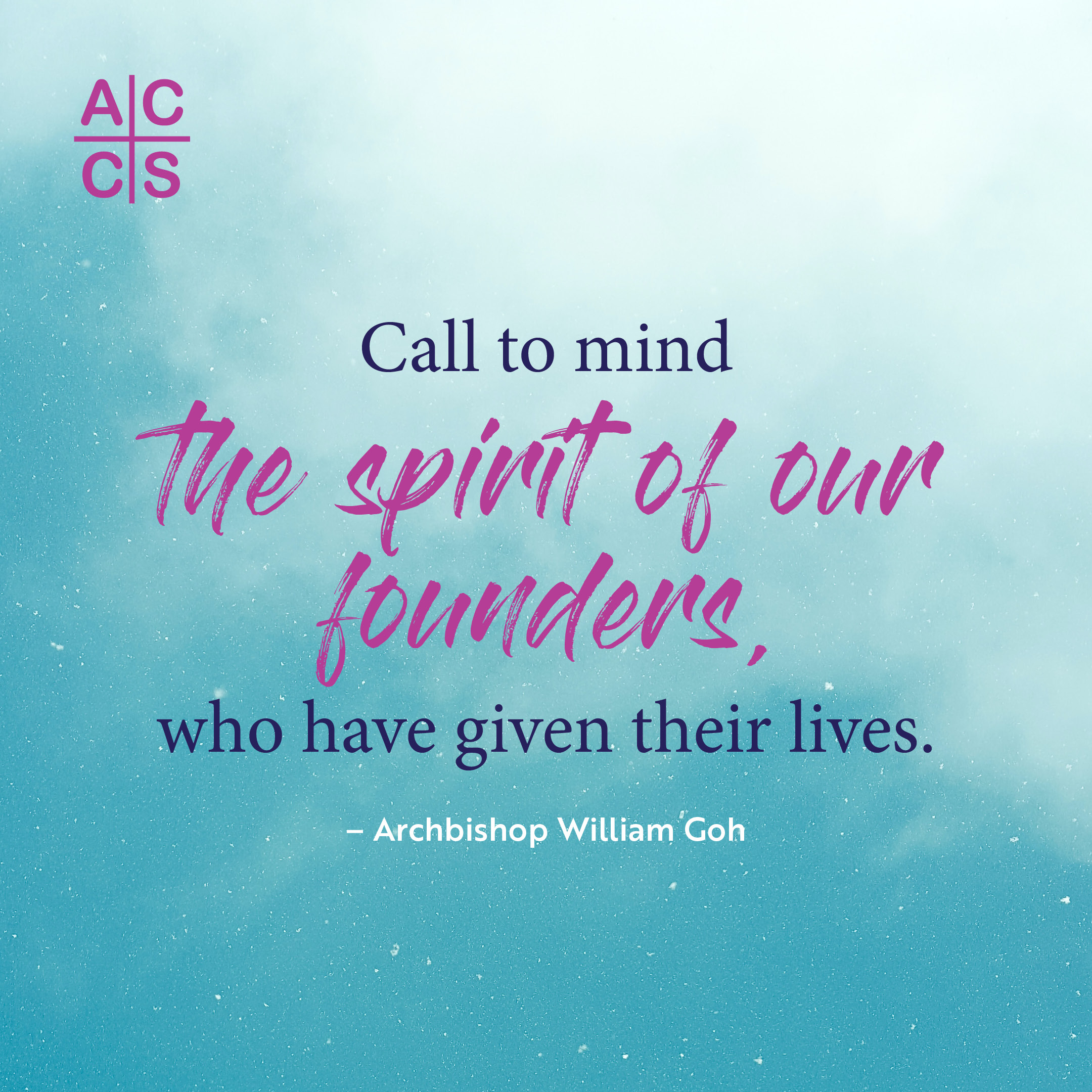 The greatest gratitude we can give to someone, is to honour them by continuing the work that they begun, and that is why it is important for us during this celebration to return to the roots of our founders. We need to rediscover their apostolic and missionary zeal – what it is that gave them the impetus to sacrifice their lives for us all.
The greatest gratitude we can give to someone, is to honour them by continuing the work that they begun, and that is why it is important for us during this celebration to return to the roots of our founders. We need to rediscover their apostolic and missionary zeal – what it is that gave them the impetus to sacrifice their lives for us all.